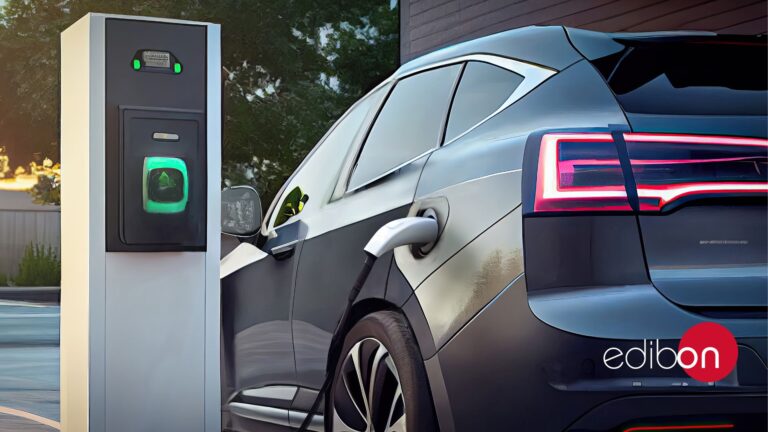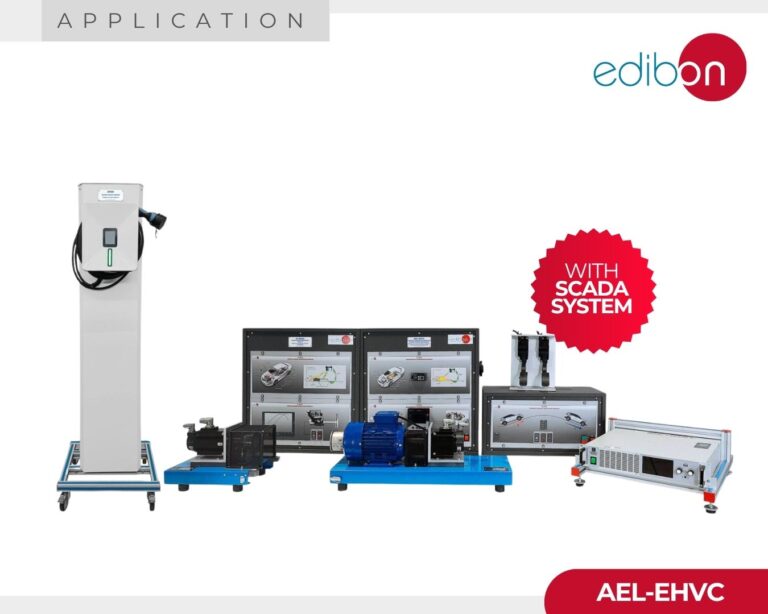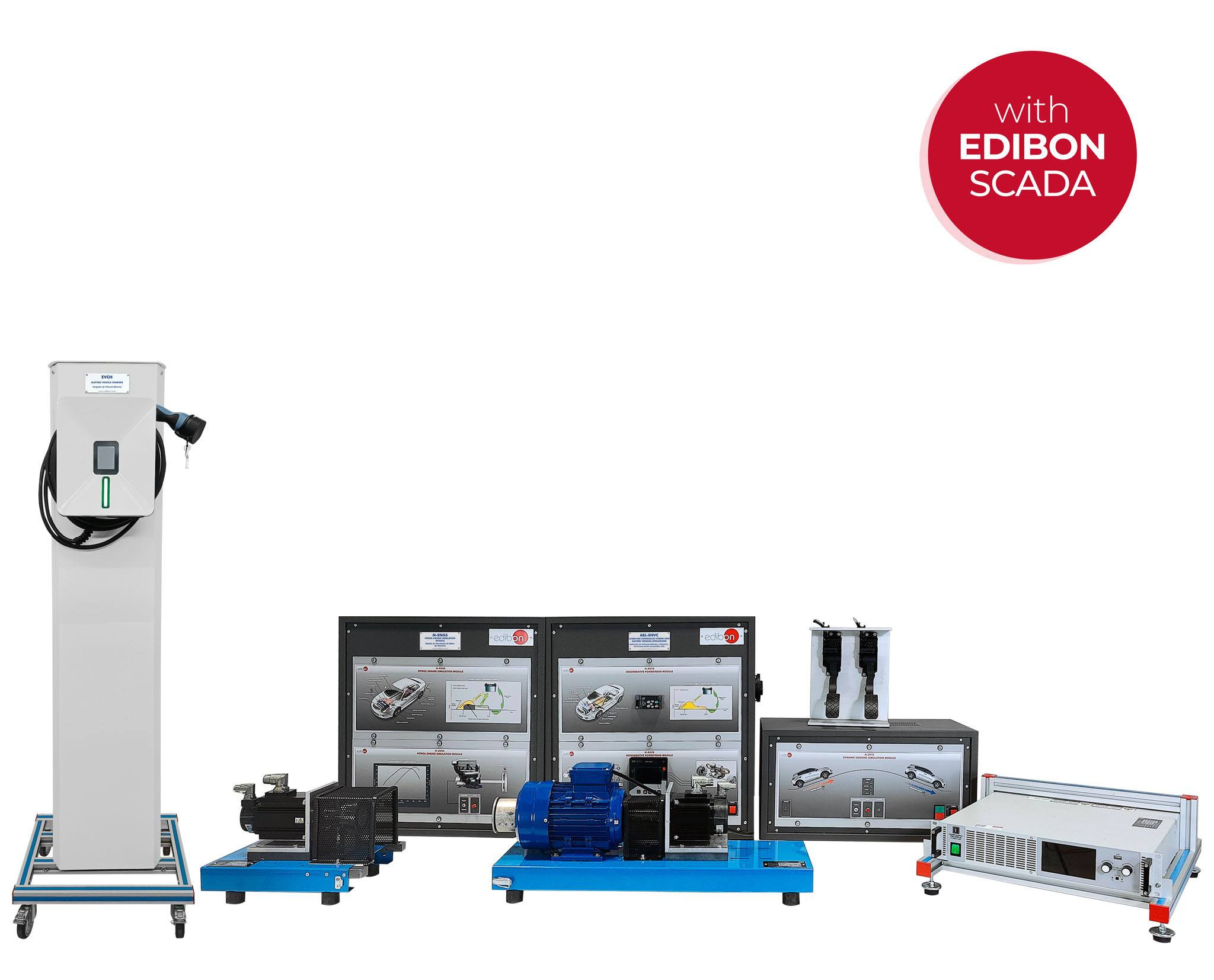The automotive industry has undergone a true revolution in recent decades. From the purely mechanical vehicles of the past, we have shifted to highly digitalized, automated, and sophisticated systems in which electronics play a crucial role. This evolution has led to the concept of “automotive electronics,” a key discipline that is now essential to understanding, operating, and maintaining modern vehicles.
In particular, the rise of electric vehicles (EVs) and hybrid electric vehicles (HEVs) has transformed not only the concept of today’s vehicle but also the training requirements for the technicians and engineers who must design, maintain, and repair them. In this context, having access to advanced educational equipment is more necessary than ever.

The Role of Electronics in Today’s Automotive Industry
Automotive electronics encompass all the electrical and electronic systems installed in vehicles, including motor control, battery management, active and passive safety systems, connectivity, driver assistance systems, and much more. Its presence is so widespread that it’s impossible to conceive of a modern vehicle without these components.
Manufacturers such as Tesla, Audi, BMW, Toyota, and Nissan have been at the forefront of developing increasingly efficient electric and hybrid vehicles, with longer ranges and lower environmental impact. However, these advances also bring new challenges: charging infrastructure remains limited in many regions, charging times can be long, and maintenance requires specialized technical knowledge that not all professionals currently possess.
The Challenge of Training Specialized Technicians
As transportation becomes increasingly electrified, the demand for professionals with knowledge in automotive electronics—specifically in electric drive systems—has steadily grown. However, the educational system and technical training institutions have not yet fully caught up with this demand.
Many training centers lack the proper equipment to simulate, analyze, and experiment with real configurations of electric and hybrid vehicles. Without solid practical training, it is difficult for future technicians to face the challenges of the real world effectively.

AEL-EHVC: A Modular and Advanced Training Solution
To address this need, EDIBON offers a comprehensive technological solution that precisely emulates the operation of an electric vehicle, including battery management, motor control, and energy recovery systems.
Recognizing this educational gap, EDIBON has developed the Electric and Hybrid Vehicle Application (AEL-EHVC), a solution designed to facilitate the understanding and analysis of key technologies used in electric and hybrid vehicles within the current context of electric mobility.
This application is designed to support the development of applied research projects in the field of electric mobility. With this initiative, EDIBON actively contributes to the training of new generations of engineers and technicians while providing experimental environments that promote innovation and scientific advancement toward more sustainable and efficient mobility.
What Does the AEL-EHVC Offer?
The Electric and Hybrid Vehicle Application (AEL-EHVC) has been developed by EDIBON to help students and researchers better understand the essential technologies integrated into electric and hybrid vehicles. Given the broad diversity of vehicle configurations that can be studied, this solution has been designed in a modular format, allowing users—whether students or researchers—to implement the desired topology. This flexibility offers a major competitive advantage over other training systems on the market by enabling real-time comparison of different configurations in terms of performance, efficiency, and operational dynamics.
The system includes real sensors and actuators, as well as a Supervisory Control and Data Acquisition (SCADA) software platform that enables real-time visualization of key variables such as traction battery behavior, electric motor rotation, and the drive system, among others. Additionally, it integrates specific features for fault detection, diagnostics, and troubleshooting—capabilities that are highly in demand in the sector.
You can watch a demonstration of the system in the following video:
Training Aligned with the Future of Mobility
The vehicle of the future will not only be electric—it will also be intelligent, connected, and increasingly autonomous. To prepare for this future, it is essential to train professionals who can lead this transformation. This training must go beyond just electrical and mechanical fundamentals to also include expertise in control systems, programming, data analysis, and advanced diagnostics.
EDIBON’s AEL-EHVC application is aligned with this vision of the future. Its design meets the real demands of the industry, offering a comprehensive training platform that covers all key aspects of electronics in electric and hybrid vehicles.
By integrating this application into their educational programs, training centers and technical institutes can offer a complete and up-to-date learning experience—bringing industrial reality into the classroom and preparing students to confidently tackle the challenges of the job market.
Contributing to a More Sustainable Model
The shift toward cleaner and more efficient mobility is a global priority. Governments, companies, and individuals are increasingly turning to solutions that reduce emissions, minimize energy consumption, and improve urban air quality. Electric and hybrid vehicles are a fundamental part of this new paradigm.
However, for this transition to be successful, it is crucial to train the professionals who will keep this new generation of vehicles running. Automotive electronics are no longer optional—they are indispensable knowledge. Equipment such as the AEL-EHVC serve as a bridge between theory and practice, between the classroom and industrial reality.
This application not only allows students to learn in a practical and realistic way
but it also supports instructors, promotes applied research, and prepares future professionals for a sector in continuous evolution. In short, it represents a strong commitment to training that is aligned with the future of mobility.

